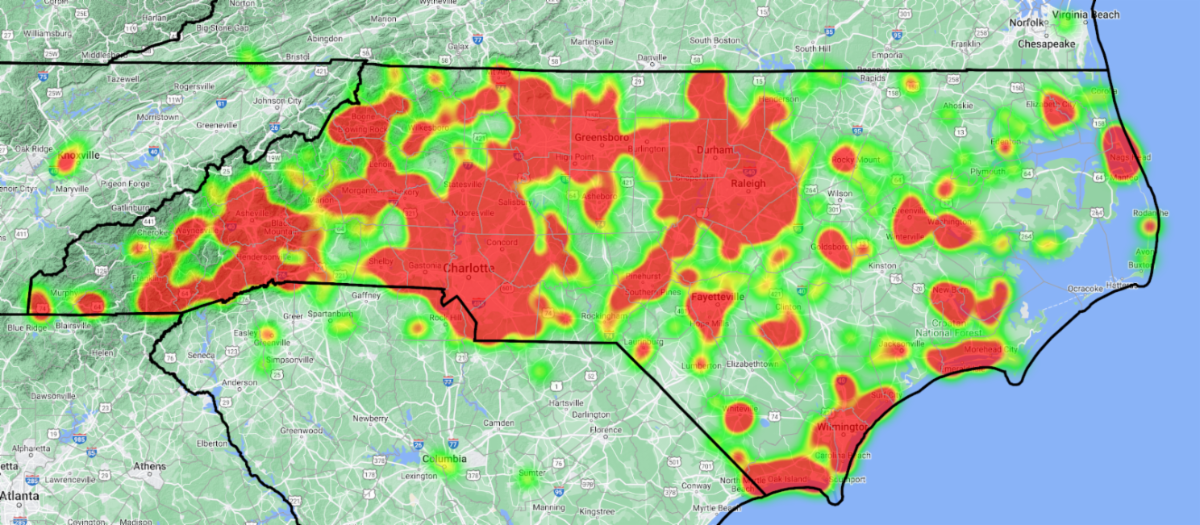Butterfly Highway Pollinator Pitstops Heating Up Across North Carolina

Pollinator Pitstops & Butterfly Highway Network
Update from Luke Bennett, NCWF conservation coordinator
North Carolina Wildlife Federation has been working on new tools to celebrate and promote your hard work for pollinators as part of the Butterfly Highway network.
Pollinators continue to make global headlines with the decline of native bees and even some migrating species, such as the monarch butterfly. Habitat loss from development is the primary cause of these declines, along with pesticide use, parasites and disease.
Thank you to everyone for being a part of the solution by providing and maintaining a pollinator pitstop equipped with native plants that support butterflies, bees, birds and other pollen and nectar-dependent wildlife. The network keeps growing and we are proud that more than 2,000 Butterfly Highway pitstops have been registered to date.
Please check out – and share with your friends! – the exciting new resources below that capture the monumental impact of your efforts and the Butterfly Highway.
Our Butterfly Highway heat map demonstrates the dedication of gardeners and pollinator lovers across North Carolina. Areas shaded in red represent the highest concentrations of registered pollinator pitstops.
Find your Butterfly Highway site number by last name and zip code, then go to the Butterfly Highway heat map to locate your site within the state. Type BH# before entering your site number; don’t include spaces when searching. Email luke@ncwf.org with any questions or site updates.
And remember that fall is a great time to sow seeds and start or expand the garden of your dreams.
- Explore our website’s Native Pollinator Plants section for resources concerning all things native plants and where to find them.
- Head to The Butterfly Highway section for more valuable resources to ensure your garden survives and thrives.
- Purchase a packet of our native pollinator seed mix, which includes up to eight different flowering plant species (listed below) for pollinators that can create up to 25 square feet of habitat.
- Partridge Pea (Chamaecrista fasciculata)
- Black-eyed Susan (Rudbeckia hirta)
- Purple Coneflower (Echinacea purpurea)
- Butterfly Weed (Asclepias tuberosa)
- Common Milkweed (Asclepias syriaca)
- Blazing Star (Liatris spictata)
- Beebalm (Monarda fistulosa)
- Heath Aster (Symphyotrichum pilosus)
5 ways to support North Carolina’s pollinators
- Order a Butterfly Highway sign to show your commitment to protecting pollinators and providing a safe haven for butterflies, bees and more.
- Register your yard as a Pollinator Pitstop and commit to providing a safe place for pollinators to thrive in both adult and early stages.
- Support the Butterfly Highway with a tax-deductible gift to help expand pollinator habitat throughout North Carolina through on-the-ground restoration projects.
- Sign up for The Butterfly Highway newsletter for the buzz on pollinators and native plants for your yard, where to buy them, and what’s flying and blooming in North Carolina.
- Make a beeline to the Pollinators & Insects section of our online library of wildlife and habitat webinars.
We thank North Carolinians for their commitment to pollinators and wildlife habitat. With your help, NCWF is restoring habitat for pollinators and other wildlife across the state. Your Butterfly Highway pollinator pitstop makes a big difference for pollinators in your community!

